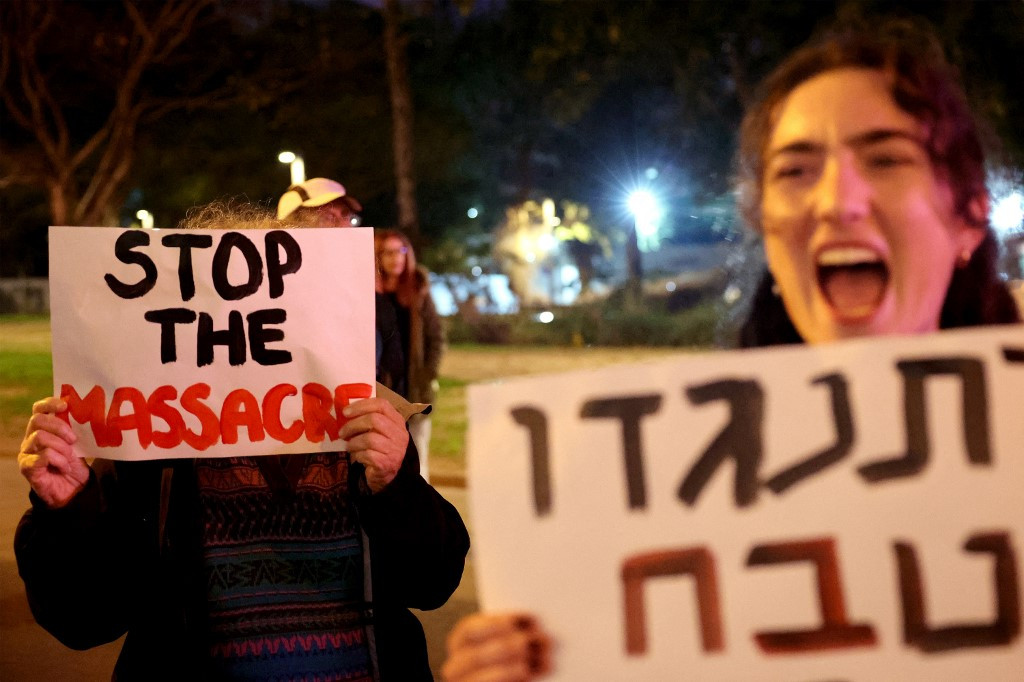Popular Reads
Top Results
Can't find what you're looking for?
View all search resultsPopular Reads
Top Results
Can't find what you're looking for?
View all search resultsReimagining the international system: A call to action
Countries are being told what to buy, what to build and how to fund their growing economies based on distant animosities and ideological divides rather than on ethical values or free market principles.
Change text size
Gift Premium Articles
to Anyone
 Demonstrators gather with signs during a protest by Israeli left-wing activists against the war in the Gaza Strip and the planned ground operation in Rafah, outside the Kirya military base which houses the Defense Ministry in Tel Aviv on February 13, 2024, amid the ongoing conflict in Gaza. (AFP/Jack Guez)
Demonstrators gather with signs during a protest by Israeli left-wing activists against the war in the Gaza Strip and the planned ground operation in Rafah, outside the Kirya military base which houses the Defense Ministry in Tel Aviv on February 13, 2024, amid the ongoing conflict in Gaza. (AFP/Jack Guez)
A
s the world grapples with a disintegrating multilateral system and the flaunting of international law, it is worth remembering two cities in Asia. Bandung, West Java, and Colombo the capital of Sri Lanka hosted important conferences that gave voice to the aspirations of the emerging developing world. In doing so they contributed to the design of the international system that till recently prevailed.
The Asia-Africa Conference convened by Indonesian president Sukarno in 1955 set out to make self-determination and non-alignment a foundational aspect of modern national development. The 1951 Colombo Plan conference established a tradition of mutual assistance to promote socioeconomic progress in the developing world.
More than 70 years later, bold ideas are again needed to rekindle a spirit of solidarity across Asia, Africa and Latin America in the face of dangerous global polarization and revisionism fueled by great power rivalry.
Polarization between great powers is forcing countries in what is often called the Global South to align themselves and sacrifice their interests to competing visions of global order and security.
Challenged by the fragmentation of the post-World War II order, the United States and Europe are demanding that states choose between democracy and autocracy. China and Russia are in turn using strong-arm tactics to deepen fissures with Western powers they sense are in decline. Dangerous revisionism is fueling a new global arms race, proxy wars and support for collateral disputes.
The situation forces smaller, weaker states to make decisions about their social and economic well-being that are not necessarily aligned with their interests. Countries are being told what to buy, what to build and how to fund their growing economies based on distant animosities and ideological divides rather than on ethical values or free market principles.
The consequent weakening of the multilateral system is destabilizing global trade and finance, exposing many countries in Asia and Africa to systemic risks. Debilitating debt crises in Kenya, Pakistan, Sri Lanka and Zambia are evidence that something is wrong.


















